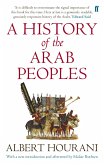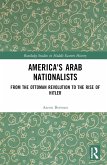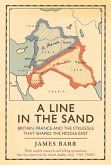Nationalism has been one of the most important political ideologies in the Arab world. This comprehensive text covers a wide expanse of time and geographical area, and includes a wealth of case studies. Rather than just concentrating on the history of ideas and the role of elites it examines Arab nationalism through the experience and role of the masses. It shows how Arab nationalism has actually manifested itself as a cultural and political phenomenon. Organised thematically it includes analysis of the 19th century origins of Arab nationalism right through to its contemporary manifestations.
Arab nationalism has been one of the dominant ideologies in the Middle East and North Africa since the early twentieth century. However, a clear definition of Arab nationalism, even as a subject of scholarly inquiry, does not yet exist.
Arab Nationalism sheds light on cultural expressions of Arab nationalism and the sometimes contradictory meanings attached to it in the process of identity formation in the modern world. It presents nationalism as an experienceable set of identity markers - in stories, visual culture, narratives of memory, and struggles with ideology, sometimes in culturally sophisticated forms, sometimes in utterly vulgar forms of expression. Drawing upon various case studies, the book transcends a conventional history that reduces nationalism in the Arab lands to a pattern of political rise and decline. It offers a glimpse at ways in which Arabs have constructed an identifiable shared national culture, and it critically dissects conceptions about Arab nationalism as an easily graspable secular and authoritarian ideology modeled on Western ideas and visions of modernity.
This book offers an entirely new portrayal of nationalism and a crucial update to the field, and as such, is indispensable reading for students, scholars and policymakers looking to gain a deeper understanding of nationalism in the Arab world.
Hinweis: Dieser Artikel kann nur an eine deutsche Lieferadresse ausgeliefert werden.
Arab nationalism has been one of the dominant ideologies in the Middle East and North Africa since the early twentieth century. However, a clear definition of Arab nationalism, even as a subject of scholarly inquiry, does not yet exist.
Arab Nationalism sheds light on cultural expressions of Arab nationalism and the sometimes contradictory meanings attached to it in the process of identity formation in the modern world. It presents nationalism as an experienceable set of identity markers - in stories, visual culture, narratives of memory, and struggles with ideology, sometimes in culturally sophisticated forms, sometimes in utterly vulgar forms of expression. Drawing upon various case studies, the book transcends a conventional history that reduces nationalism in the Arab lands to a pattern of political rise and decline. It offers a glimpse at ways in which Arabs have constructed an identifiable shared national culture, and it critically dissects conceptions about Arab nationalism as an easily graspable secular and authoritarian ideology modeled on Western ideas and visions of modernity.
This book offers an entirely new portrayal of nationalism and a crucial update to the field, and as such, is indispensable reading for students, scholars and policymakers looking to gain a deeper understanding of nationalism in the Arab world.
Hinweis: Dieser Artikel kann nur an eine deutsche Lieferadresse ausgeliefert werden.








